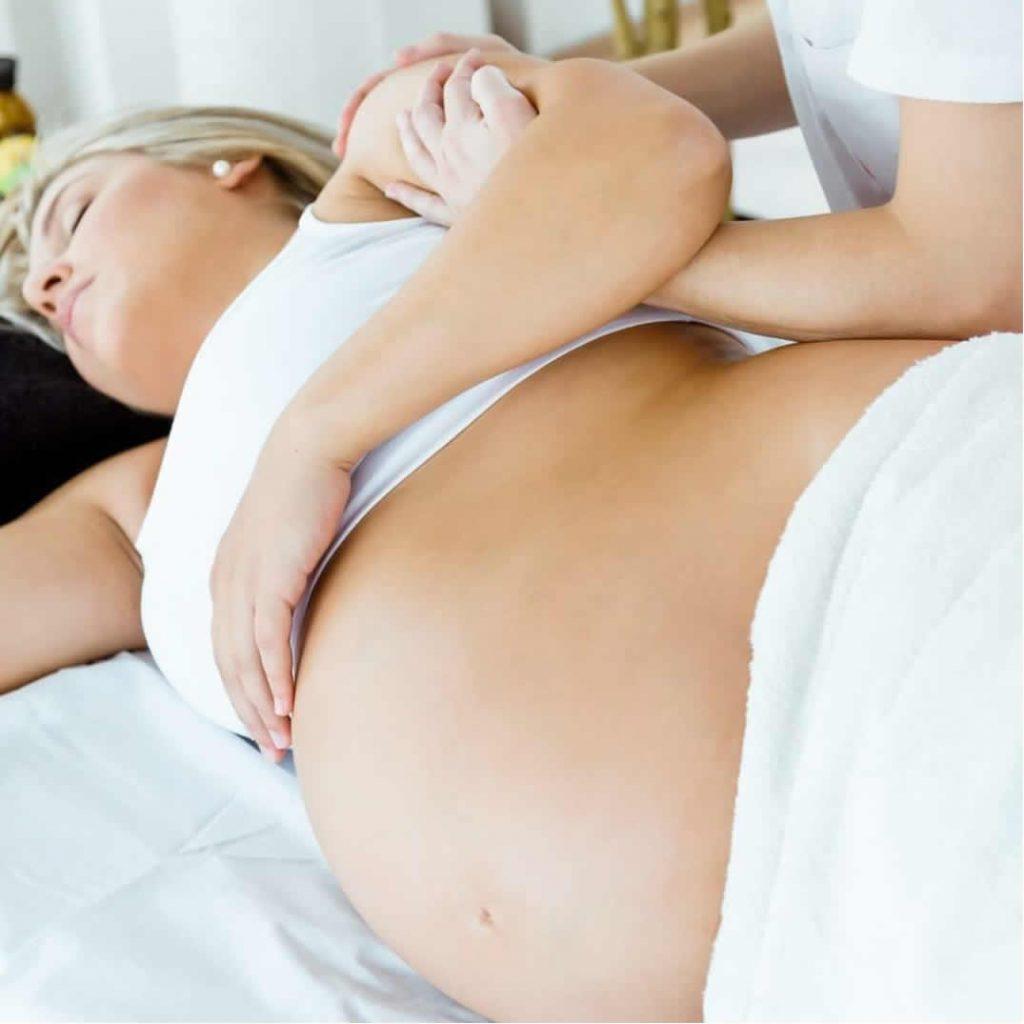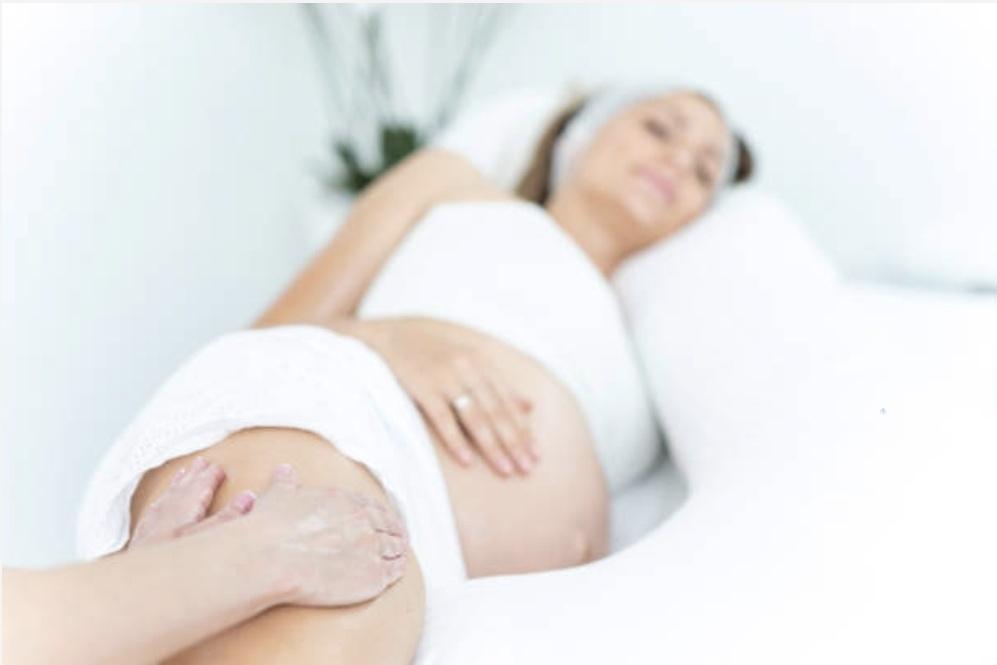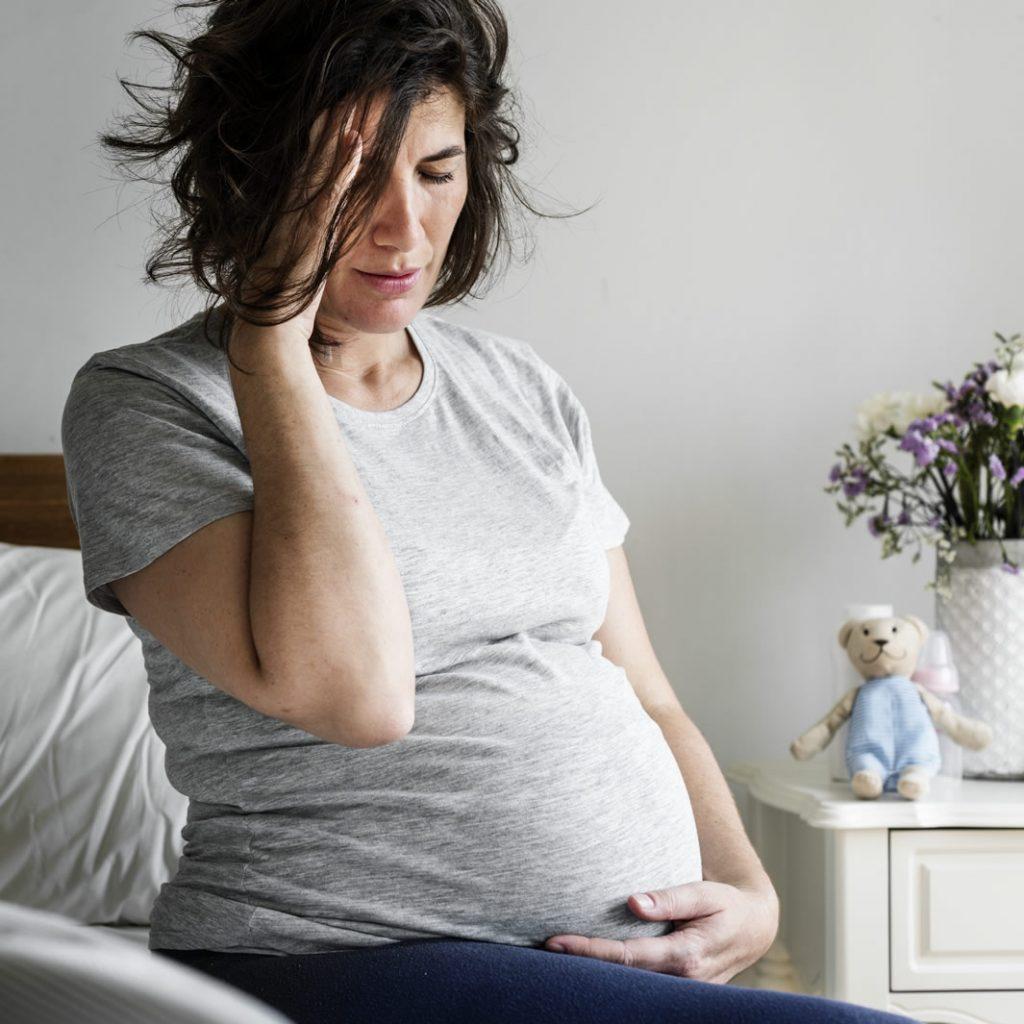
Pregnancy Massage
Pregnancy Massages given by McKenzie Remedial Massage of Hazel Grove, Stockport help to reduce the discomfort of pregnancy, improving general wellbeing for mum.
Pregnancy Massage techniques aim to promote relaxation and relieve muscle tension in the back and legs – keeping the body calm and balanced.
During a prenatal massage, you will usually positioned be lying on your side rather than on your stomach or back. This is particularly important during the later stages of pregnancy.
Pillows, bolsters, or padding may be used to support your back, knees, and/or feet.
Alternatively, your massage therapist may suggest that you sit upright or in a semi-reclining position.
Pregnancy Massage has multiple positive benefits, including:
- Lowered anxiety
- Improved sleep and Insomnia reduction
- Reduced joint, neck and back pain
- Reduction in pain caused by Carpal Tunnel
- Alleviation with leg cramps
- Reduced swelling in your hands and feet
- Decreased levels of the stress hormone – Norepinephrine
In another study of pregnancy massage in depressed women, researchers found:
- Increased levels of the “feel-good” hormones – serotonin and dopamine
- Decreased levels of cortisol – an indicator of stress
- An overall improve the mood
Is Pregnancy Massage safe?
Many massage therapists won’t give pregnancy massages during the first trimester. The reason is the potential for miscarriage.
Some pregnancy massage experts argue that pregnancy massage doesn’t, in itself, cause miscarriage, but no research has been done to show a link between a massage and a miscarriage.
Because many miscarriages happen in the first trimester, some massage therapists and doctors counsel against first-trimester massage simply to avoid any potential liability issues should a miscarriage occur.
At Mckenzie Remedial Massage your pregnancy massage will be tailored for your needs, every expectant mother is unique.
When to avoid Pregnancy Massage
As with any new therapy, consult your doctor or midwife before booking a pregnancy massage treatment.
Use extra caution if you have a high-risk or complicated pregnancy, including:
- Increased risk of pre-term labour
- Preeclampsia or high blood pressure
- Blood clots or a clotting disorder
- Problems with your placenta, such as placenta previa





